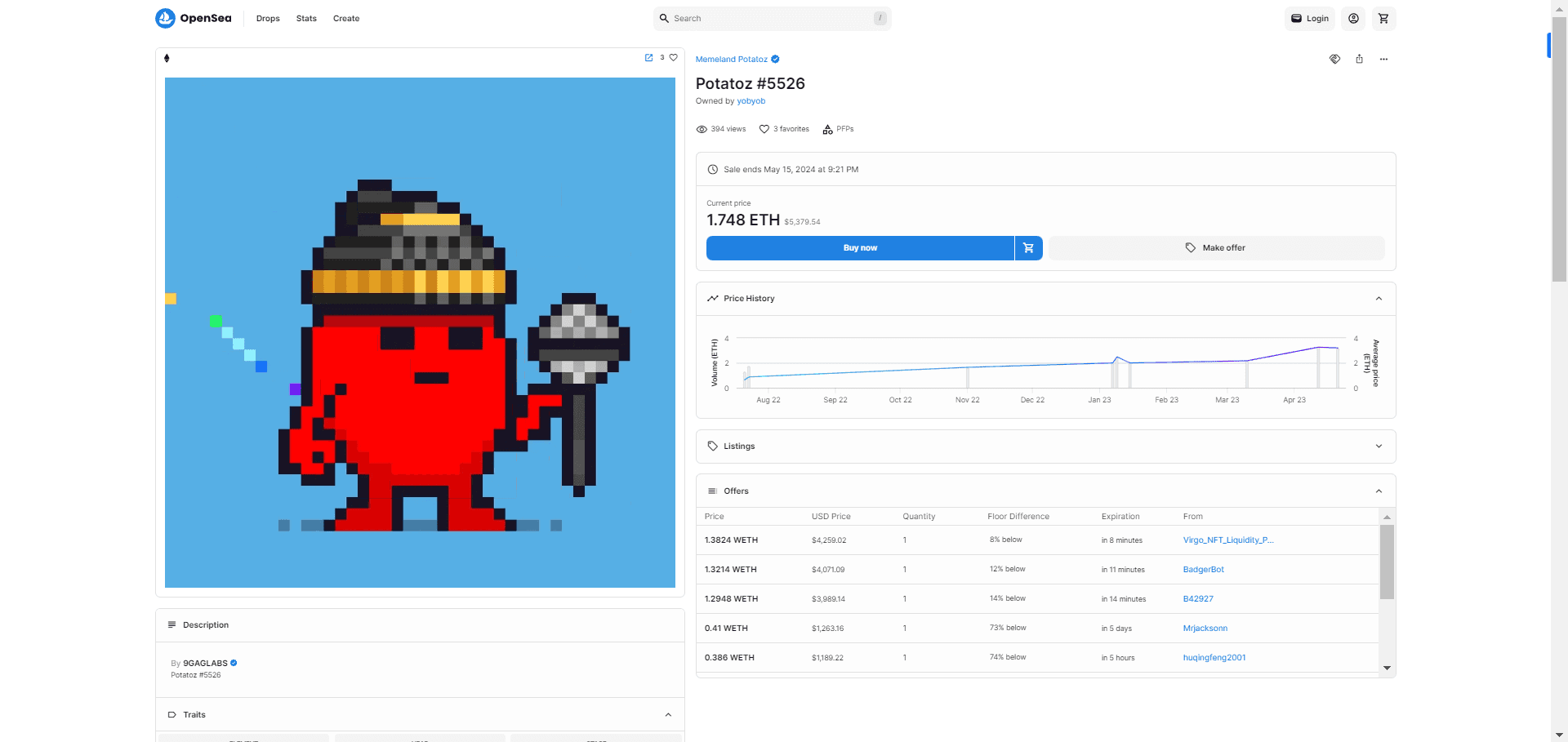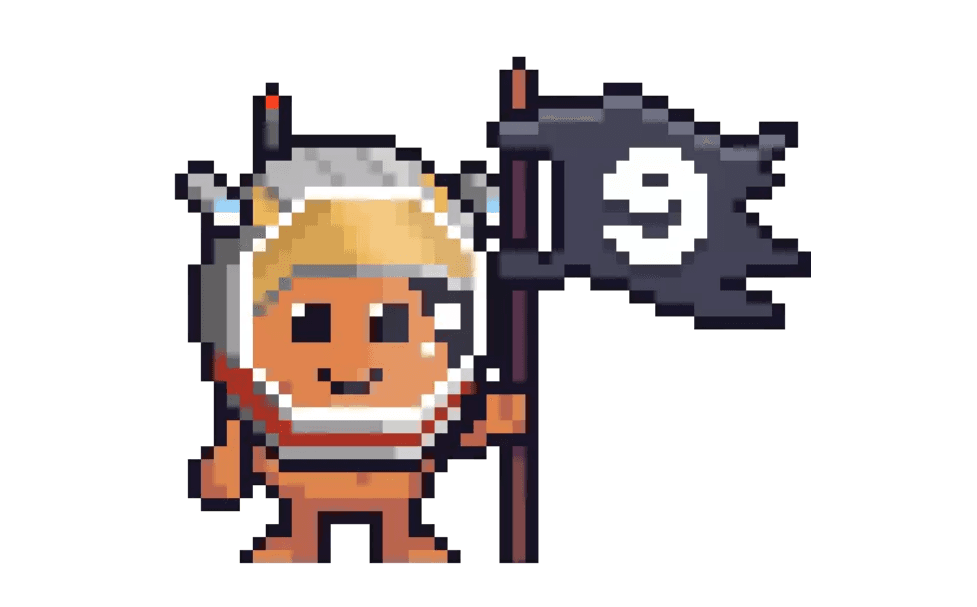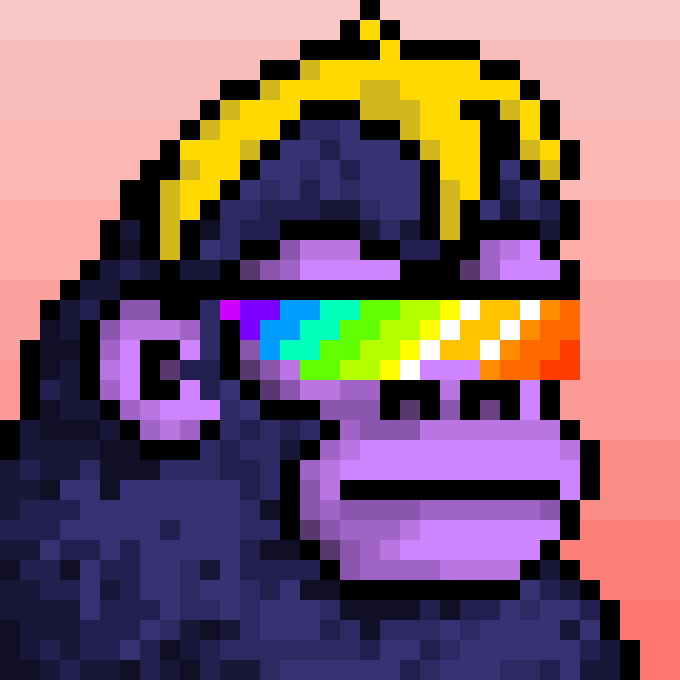TL;DR: With a new update or NFT collection being released almost every day, it’s clear the crypto ecosystem is constantly evolving. Memeland is one of the NFT collections paving the road to the digital universe — but it’s just the beginning. Knowing what brought it here and why it was created will lead you to make better decisions when investing or simply interacting with Memeland.
In this article, we’re gonna dive into the Memeland lore, answer all the Memeland-related questions and even more. Prepare yourself for a fantasy story and a journey to the future of Memeland!
What is Memeland by 9GAG?
Memeland is a metaverse made out of three main NFT collections: YOU THE REAL MVP, The Potatoz, and The Captainz.
The lore around Memeland plays with the idea of epic quests for glory, quests for fortune, and perhaps even quests for love, all set against the backdrop of these remarkable Memelands, waiting to be explored.
Within this vibrant setting, you'll discover intriguing elements such as a fractured sea, daring pirate crews, the enigmatic Treasure Island, formidable sea monsters, and, of course, the presence of memes.
Now, let’s introduce each NFT from the Memeland collection.
YOU ARE THE REAL MVP
YOU THE REAL MVP is a collection of 420 mythical trophies, forged in Dreamland and grounded in the Ethereum network. They represent the most exclusive tier holders can gain in the Memeland ranks.
THE POTATOZ
The Potatoz is a collection of 9,999 PFPs that live on the Ethereum blockchain.
Potatoz serves as the ideal companion for Captainz. Despite their small stature, they possess remarkable strength. Their endearing appearance belies their potential for mischief. They can either be a delightful side dish or evolve into the main attraction. Their innate talent for discovering treasures is coupled with a penchant for being pesky little troublemakers. As a result, most Captainz prefers to limit their crew to just 2-3 Potatoz.
THE CAPTAINZ
The Captainz is a collection of 9,999 PFPs that live on the Ethereum blockchain. With their crew of Potatoez, Captainz explore the Broken Seas in search of the legendary treasure known as “Memeland.”
Owning an NFT is different than screenshotting a JPEG - just like holding an original Rembrandt is more valuable than owning a replica. As their name suggests, NFTs are non-fungible by design. This is different from digital tokens like Bitcoin and Ethereum.
Fungible assets can be exchanged for another asset of the same type, much like BTC, ETH, or even fiat. NFTs, on the other hand, are unique assets where their ownership details are documented on the blockchain, ensuring digital scarcity and unique attributes for each asset.
But how exactly is digital scarcity being enforced?
The concept of NFTs first emerged in 2012 with the creation of Colored Coins, which could be used to represent real-world assets on the blockchain. However, Colored Coins only worked in a permitted environment, making it more similar to a database than anything else.
As the crypto industry became more popular, people have continued to experiment with the idea of a digitally scarce asset. This led to the creation of ERC-721 and ERC-1155.
The ERC-721 standard is like a set of rules for making NFTs. These actions help in making special tokens with their unique information, making them different from one another.
Behind the scenes, ERC-721 smart contracts keep a list of who owns which token, making it safe to pass tokens from one person to another. The contract also keeps count of how many tokens there are altogether and how many each person has.
As previously mentioned, Memeland NFTs are secured by the Ethereum blockchain. Ownership and transaction history are publicly visible on the Ethereum blockchain along with other important info such as the NFT's metadata.
Understanding how to access an NFT's metadata is essential for holders to grasp the specifics of what they're buying.
Metadata usually includes visual attributes like color, type, wearables, and so on. On the blockchain, it looks something like this:

Memeland NFTs have their own set of traits that make up their uniqueness.
YOU THE REAL MVP have only one trait, trophy.
The Potatoz have traits such as element, head, mutation, pose, shoes, size, stage, type, and weapon.
Meanwhile, the Captainz have traits such as stage and type.
Some traits are rarer than others, which makes a specific NFT stand out from the rest. For example, there are only 100 Captainz that have the alien type.

The Memeland NFT collection has been autogenerated. This means that out of the potential combinations, the collection is capped from the beginning.
What is the utility of Memeland NFTs?
NFTs from the Memeland collection make for an awesome avatar pic, but it’s also your ticket to the fascinating metaverse of Memeland.
Each NFT comes with its own perks, so let’s explore them one at a time:
YOU THE REAL MVP
MVPs, or Most Valuable Potatoz, enjoy a prestigious "alpha-group membership" that bestows upon them a range of exclusive privileges. These perks include access to confidential information about upcoming Memeland releases, entry to the private and exclusive Memeland Discord MVP Lounge, invitations to real-life events, and the opportunity to partake in special collaborations. Moreover, MVP holders have received the bonus of three free mints for Potatoz and two free mints for Captainz as part of their exclusive membership benefits.
Because they are so limited (only 420), their floor price goes at 32 ETH. At its ATH, these NFTs were trading at 50+ ETH.
THE POTATOEZ
Potatoz serves as the foundational membership level within the vibrant Memeland community. By joining the ranks of Potatoz, you become more than just a participant; you're akin to a co-founder of Memeland itself.
One intriguing aspect of being a Potatoz member is the introduction of innovative non-custodial staking and a multi-stage reveal system, which introduces an element of excitement and rewards for our enthusiastic community.
When you nurture your Potatoz, they remain securely in your wallet, safeguarded from potential hacks and scams, and gradually advance through various stages, progressing from stage 0 to stage 5. During this growth process, you collect tickets that grant you entry to the weekly prize draw. It's been whispered that this growth process is tied to $MEME, enabling list positions, NFT releases, access to real-life events, and more exciting opportunities!
THE CAPTAINZ
Captainz represents the premier-level membership of Memeland. Every Captainz has the opportunity to unlock $MEME, the native currency of Memeland. They can earn a specific amount of $MEME on a daily basis, whether through passive holding and staking or active participation in Memeland activities.
These $MEME tokens serve as the governance token of Memeland DAO.
MEMELAND RAIDS
Did someone say adventure? NFT holders can join Raids and build their fortune. Of course, you don’t have to board a real ship. Instead, Captainz holders unite in the Discord and raid each other for the map to Memeland.
In Season 1, Captainz will gain experience after each raid and will have a 45% chance to win a Special or Extraordinary Map, a 48.1% chance of losing their Map to the other Captainz, and a 6.9% chance of the Map being lost in the Broken Seas aka burned.
MEMELAND POTION HUNT
While your Captainz are recovering form the Raids, you can build your crew with other players and hunt for potions.
As the Memeland brand expands, NFT holders will be able to continually earn rewards. Whether you are hodling for a season or longer, the Memeland ecosystem continues to explore new ways of keeping holders engaged.
Who created Memeland?
Memeland was created by Ray Chan and his team at 9GAG at the beginning of 2022.
The famous website was founded in 2008 by Ray and a group of Hong Kong students. Back in the day, Facebook wasn’t so popular in Hong Kong, so the students wanted to create an email-like environment for sharing funny photos and videos.
Like any other successful startup story, the website was just a side project. Little did the students know that 9GAG would soon attract more than 10 million unique visitors who wanted to laugh at memes in between breaks. 9GAG founders then began using the website as a resume for the 500 Startups accelerator program.
From 2008-2012, 9GAG participated in Y Combinator’s incubator program and grew to 70 million unique monthly visitors.
The idea of 9GAG was simple: let people post memes, and make it very accessible. This recipe helped create one of the biggest meme hubs.
Ray Chan first interacted with crypto in 2020. In one of his interviews, he told how he first bought ETH and started making transactions to see how it works. It wasn’t until 2022 when Ray bough his first NFTs. In his opinion, buying an expensive NFT was a great way to learn more about the ecosystem. So, he bought a Bored Ape.
He admitted that going for the expensive NFTs was a mistake, but losing money was not really a problem for him. Ray was rather mesmerized by the concept of Web3. He started joining Discord servers to get a grasp of what was unveiled before his eyes. Hundreds of people were banding up in communities, united by their love for a JPEG collection – or rather what it symbolized.
In a Web2 environment, the team builds and raises money from investors, and this is where the cycle ends. In Web3, the product design is community-heavy, which is akin to crowdfunding projects.
This concept of community involvement resonated with Ray because it reminded him of the early days of 9GAG, when a small community was inspiring each other with meme templates and ideas. Only this time, creators can earn a share of the pie.
And thus, the idea behind Memeland was born.
The project started with small steps. If they could bring say 100 creators to join early they could provide a lot more utility to the NFT holders and gradually expand.
The very first NFT project they launched was “YOU THE REAL MVP.” The mint price was 5.3 ETH, and it ended up with 200/420 mints on June 15, 2022. Within 7 days, Memeland claimed that YOU THE REAL MVP generated more than 900 ETH in revenue. 100 of these NFTs stayed in the treasury for future giveaways.
Today, holders of "YOU THE REAL MVP" own an exclusive alpha-group NFT membership pass consisting of 420 unique golden trophy JPEGs within the Memeland ecosystem. This prestigious pass provides holders with privileged benefits, including access to confidential information regarding upcoming Memeland releases, exclusive entry to the Memeland Discord MVP Lounge, invitations to IRL events, and opportunities for engaging in collaborations.
Ray called it the best move they could have done. The Luna crash was still fresh in the minds of the crypto investors, so Memeland wasn’t viewed as a rushed money-making scheme. Instead, Ray and his team were really able to communicate with the MVP NFT holders.
The next step in gaining attention was to give out free stuff on the internet. Ray already knew this strategy was working in Web2, and thus went to giveaway iPhones. Basically, they have used the funding from the MVP NFT mint to fund the giveaways.
On July 20, 2022, The Potatoz was launched as a free mint. Similarly to the MVP NFTs, holding a Potatoz provides access to exclusive club memberships, eligibility for weekly prize drawings, priority access to waitlists, invitations to in-person events, and whitelist benefits for forthcoming 9GAG initiatives and releases.
By August 2022, the total trading volume of the Potatoz NFT collection had exceeded $15 million.
The Captainz mint started on January 4, 2023, with a mint price of 1.069 ETH. Memelist wallets, Potatoz and Waitlist holders were the first in line for the minting event.
As of October 2023, Captainz trades at a floor price of 4.55 ETH. Overall, Memeland is regarded as one of the most valuable NFT projects in the space.
Who is developing Memeland now?
Memeland is being maintained by 9GAG in collaboration with the Captainz DAO.
Captainz are in charge of overseeing the Memeland DAO. This decentralized autonomous organization is designed to be driven by the community, enabling the expansion and enhancement of the Memeland ecosystem. The DAO's objective is to allocate resources to support endeavours and activities that align with the Memeland mission. Membership in the DAO is accessible to all Captainz, who will play a pivotal role in determining various aspects of the DAO, including its treasury management, governance protocols, partnerships, and more.
9GAG has made it official that their project, Memeland, will not have a traditional roadmap. Instead, they will opt for an approach of open and continuous communication to share information and developments as they occur.
The question of whether a roadmap is necessary for every NFT collection is a multifaceted one. On one hand, roadmaps can offer investors a sense of security by outlining the project's objectives and expected timeline. However, some argue that roadmaps can be misleading or even deceptive, as there are no guarantees that a project will fulfil its promises.
In the context of Memeland, this decision has stirred various reactions within the NFT community. Only time will reveal the wisdom of 9GAG's choice to deviate from a roadmap. Nevertheless, their commitment to transparency and open communication is evident, and these qualities are fundamental for the success of any NFT project.
Investors are also an important component of the Memeland ecosystem. Although they don’t get involved directly in the governance of the project, they do exert an influence over the brand’s expansion into the mainstream. In addition to their solid corporate groundwork, they've managed to assemble a dream team of advisors and investors. This remarkable roster features industry rockstars such as Gary Vee from VeeFriends, Kevin Rose from Moonbirds, Kevin Ma from Hypebeast, and numerous other influential figures in the field.
How does Memeland make money?
Now, let’s get to the juicy part – how does Memeland make money?💰 (No, flipping and rug pulling are not the correct answers)
The answer to this question is strongly related to intellectual property.
Think of popular trademarks such as Mickey Mouse, Spider-Man, or Coca-Cola. Every time you see movies, books merch, or posters with them, know that the owners of the IP get a share of the profits. The same thing goes with the NFT holders, in theory.
When it comes to NFTs, it’s quite challenging to fit them into the traditional framework of copyright law. To give more context, owning an NFT doesn’t mean holders have automatic control over the creative work. This creative control needs to be granted by the creator.
As such, NFT holders should pay attention to what IP rights, if any, come with owning the NFT.
9GAG has authorized the use of the IP of any individual's owned NFTs. This means NFT holders have full commercial rights to the art in their owned wallets. There are no monetary limits on earnings on merchandise, derivatives or other commercial uses.
Another way of generating revenue is via royalties. As of 2023, Memeland earns 3.33% in royalties from Captainz secondary sales, as well as from The Potatoez secondary sales.
Memeland was able to lower royalties from 9% to 3.33% because the project is funded mostly from 9GAG profits.
Despite not having a very clear roadmap, Memeland is working on four projects that offer utility to the NFT holders and help fund the project. The utility is centred around the MEME token, which will act as a currency to access the Memeland metaverse. For now, all we know is that the team is working on it.
Where can I buy Memeland?
You can buy Captainz and Potatoz on OpenSea.





































